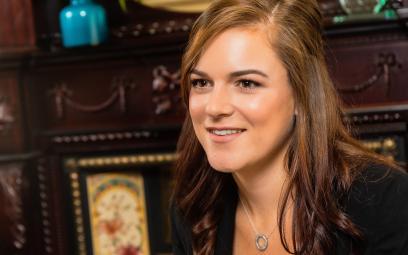
Posted on 12 February 2025
Do Domestic Violence and Domestic Abuse Case Numbers Spike at Valentine’s Day?
Posted in Advice
Valentine’s Day is a time for people to celebrate their love for one another. The media is full of pink hearts, and florist shops are full of red roses.
For some people, however, it is a difficult time, whether that’s due to a situation they are currently in or whether it brings back memories of traumatic past relationships.
Domestic abuse can take the form of love-bombing, where an abusive partner showers their companion with love and affection as part of a pattern of coercive control. This is a common pattern around Valentine’s Day.
Love-Bombing
Love-bombing is an act of manipulation where an abuser can inundate their partner with messages and gifts, all while seemingly being charming and kind. The gifts and kind words are then twisted to make the partner feel guilty and indebted to the abuser.
An abuser can lull their partner into a false sense of security with gifts and affection, but then anger quickly and become violent, when things do not go as planned.
Domestic Abuse
Domestic abuse can take many forms including physical and sexual violence, as well as emotional and financial abuse or coercive control. There is no typical victim of domestic abuse. Survivors groups say we should all look out for the warning signs.
Warning Signs of Abuse
- Controlling and isolating behaviours – do they keep tabs on where you are and prevent you seeing friends and family?
- Anger and blame – are they quick to anger, and always blame you for situations?
- Extreme jealousy – are they jealous to the extent of paranoia?
- History – do you know if they have a history of abuse in other relationships?
Clare's Law
Anyone can use Clare’s Law to request information about a current or ex-partner or even for another person when you are concerned about their welfare. Most police forces allow this to be made as an online request.
Domestic Abuse Statistics
- 2.3 million people aged 16 and over in England and Wales experienced domestic abuse in the year ending March 2024 (most recent figures published by the Office of National Statistics).
- This only accounts for the crimes that were reported to the police.
- The victim was female in 72.5% of cases of domestic abuse.
- Approximately half of all violence against the person crimes were recorded as being domestic abuse against women.
Criminal Injury Compensation Claims
If you have suffered domestic abuse it, may be possible for you to make a claim for compensation through a government funded scheme, called the Criminal Injuries Compensation Scheme.
This scheme awards compensation for physical and sexual violence. It unfortunately does not make any awards for emotional abuse, such as coercive control or for stalking and harassment.
There are multiple requirements with the scheme, but the main points are that the crime must be reported to the police and the victim must co-operate with the police and courts in bringing the assailant to justice.
There are time limits within the scheme, and survivors of abuse considering making an application are urged to do so without delay.
Winston Solicitors
Winston Solicitors has a team of specialists who can deal with claims through the Criminal Injuries Compensation Authority on your behalf. We can give guidance and advice and will work to ensure you receive the best possible outcome for your case.
If you would like to discuss your situation with a member of the team you can call us on 0330 300 5000 or email cica@winstonsolicitors.co.uk
Sources of Support
If you have suffered abuse, there is help available. If there is an immediate threat, call the police on “999.” If you are unable to speak cough or tap the phone and press 55 and they will know you need the police.
Report non emergencies to the police by calling “101.”
The National Domestic Abuse Helpline has a freephone 24 hour phone number to call on 0808 2000 247
Women’s Aid can help online at I need help - information and support on domestic abuse
There is a freephone helpline run by Respect for men affected by domestic abuse on 0808 8010327 and their online help is at Domestic Abuse Helpline for Men | Men's Advice Line UK
